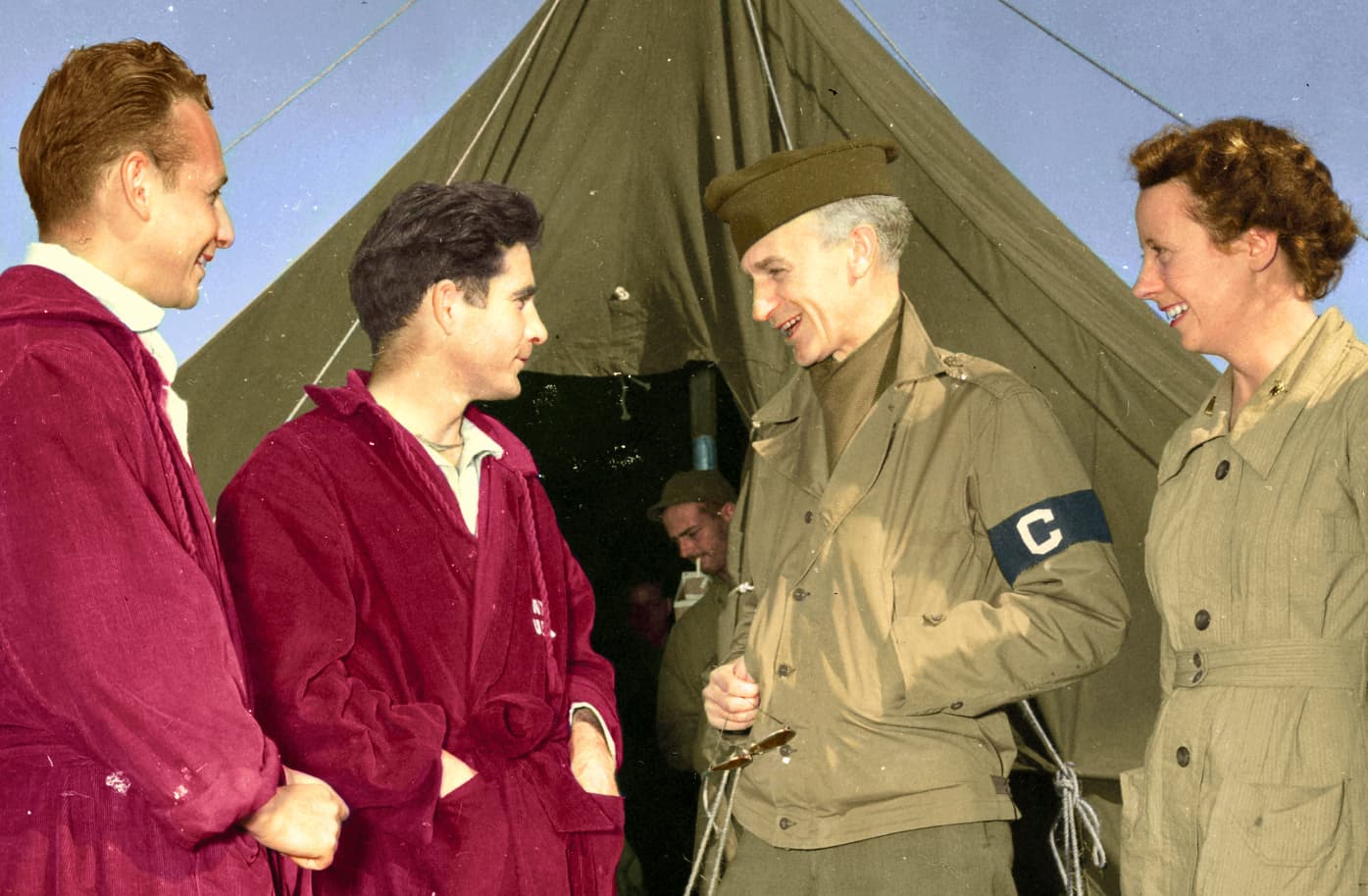Ernie Pyle in action
Ernie Pyle, the Roving Reporter of the Pittsburgh Press, is snapped by an Army Signal Corps photographer in front of an Army tent in Algeria. He is shown with (L-R) Pvt. Raymond Astrackon of New York, Sgt. Ralph Gower of Sacramento and Army Nurse Annette Heaton of Detroit. Sgt. Gower is the man Ernie wrote about in his column of Dec. 14 who learned lipreading from a deaf-mute neighbor when he was a child and made his knowledge vitally useful after the explosion of an enemy shell destroyed his hearing.
